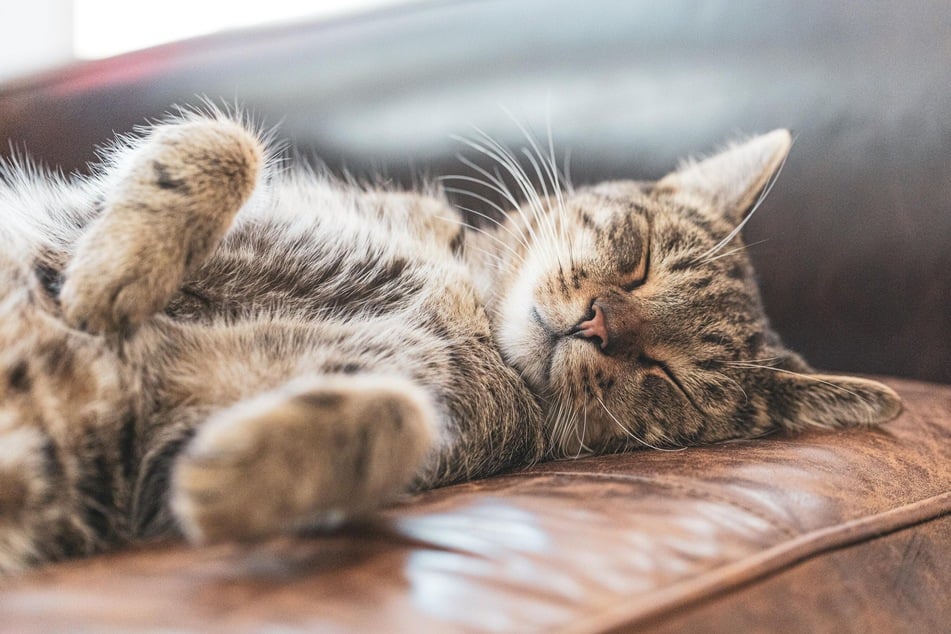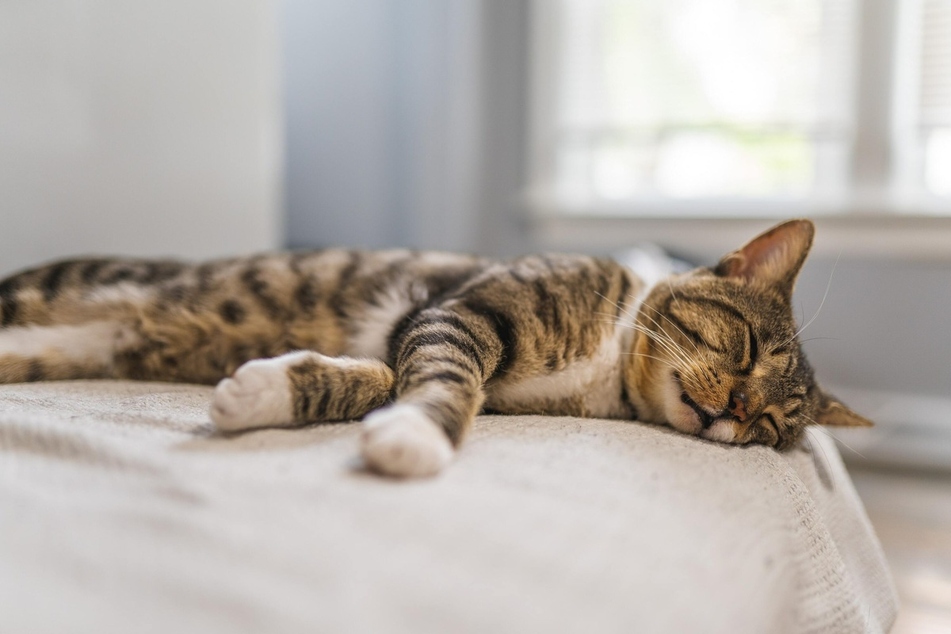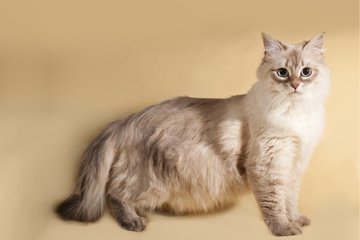Why does my cat snore and is cat snoring normal?
A little bit of rumbling can be quite a normal thing when your kitty is sleeping, but do cats snore and is it normal? We take a look at a common question about your feline friend!

There won't be many people on this planet who would deny that a sleeping, grumbling cat is one of the cutest things ever.
But that doesn't necessarily mean that there isn't anything to be concerned about. Snoring in humans is caused by constricted or blocked airways, so what about cats?
TAG24's cat guide takes a look at why cats snore and whether cat snoring is normal and healthy.
What should you know about a cat's noisy sleep? Let's find out!
Is cat snoring normal? Do cats snore?
It is completely normal for your cat to snore a little bit when it is sleeping. Snoring is generally caused by a slight constriction of its airways during sleep, and is more-or-less the same as it is with humans, so unless their breathing patterns have changed in a worrying way, it's totally fine.
All cats will snore at least a little bit from time to time. If this behavior becomes more severe quite suddenly, or if it is accompanied by other symptoms, then you should get your kitty checked out. In the case that all is fine, don't be concerned.
My cat is snoring, sneezing, and wheezing
Snoring, sneezing, and wheezing are often a bad combination in cats. Sneezing and wheezing could be a sign of something worse than just a little bit of sleep-induced snoring, but it could also be cat flu.
Sneezing could potentially be a concern as well, so in these cases your cat should be taken to the veterinarian.

Why is my cat snoring?
Not every single snoring cat needs to make a trip to the vet, indeed, most don't. Snoring is actually absolutely harmless for most cats, though it is always best to stay safe and get regular veterinary check-ups.
An unusual sleeping position
Cats can sleep in a variety of insane positions, making themselves comfortable on seemingly uncomfortable surfaces. Depending on their heads' position, the bizarre shapes they can roll into can cause blockages in their airways and, as a result, snoring.
Signs of well-being
If cats feel comfortable and safe in the presence of their owners, then they may fall into deep sleep. When this happens, they relax so much that their throat muscles actually slacken, narrowing their airways (now, that's relaxation!). In other words, your cat might snore because it trusts you. Cute, right?
Polyps
Polyps are benign growths that narrow a cat's airways and grow to around an inch in size. These formations can usually found in the ear or throat and restrict airflow. While mostly harmless, these polyps should be looked at by a veterinarian as larger ones can be removed and it is best to make sure that any polyp that may be there is, indeed, benign.
Anatomy
Domestic cats were bred to have a shortened facial skull. This was due, primarily, to our desire for cats to be as cute and visually pleasing as possible. Unfortunately, though, those same short heads restrict the amount of air that a cat can take in (especially when sleeping).
Other anatomical causes of snoring in cats are a small lower jaw, a soft and flaccid palate, or enlarged tonsils. Regular visits to the veterinarian are vital to rule out anything dangerous and make sure that any steps that can be taken to lessen cat snoring are completed.
Keep in mind: If your cat is snoring due to one of these reasons, it is unlikely that it is much of a cause for concern. That being said, if you are worried, get your kitty checked by the veterinarian.
Worrying reasons why my cat is snoring

If your cat's snoring is unusually loud or is accompanied by other symptoms like fever and sneezing, it could potentially be caused by something a bit more worrying. Especially alarming is if their breath stops intermittently while sleeping, or if they seem to be snoring despite being awake.
Obesity
If your cat is overweight, you may find that it has increased pressure placed on its airways. This will cause your cat to snore, but is also indicative of a bigger problem. Obesity leads to severe health damage, as well as issues like osteoarthritis and diabetes. Your vet should be made aware and advice should be taken.
Allergies
Yes, humans aren't the only ones with allergies. Cats may have adverse reactions to all sorts of environmental factors, with allergic reactions triggering constricted airways, fevers, intense itching, and various other symptoms.
Infectious diseases
If your cat has been snoring heavily as well as sneezing or wheezing, it could have an infectious disease like a cat cold. If this is the case, you should take your kitty to the veterinarian for appropriate treatment.
Parasites
Cats can be infested with a variety of different parasites, including worms, fleas, and ticks. This can cause them to snore due to swelling in their airways. Such infestations can be detected using x-rays and fecal samples, and treated with medications. Again, see a vet if you are concerned.
Sleep apnea
If your cat seems to intermittently stop breathing during sleep, it is possible that it has sleep apnea. This is caused by the narrowing of your cat's airways, and is also an affliction that occurs in humans. A cat suffering a problem like this will often snore very loudly.
You may notice that, in between snores, the cat will stop breathing for quite a long and worrying amount of time. In such a case, the cat should be taken to the vet and checked out. This lack of oxygen can lead to cardiovascular diseases and a variety of other issues as well.
Tumor
We previously discussed the possibility that your cat's snoring could be the result of a malign polyp, but it is important to acknowledge that those polyps are not always malign. If a malignant tumor develops in the throat, it can constrict their airways and cause serious snoring.
It may sound almost like a grunt, though, in such a case, and as the tumor grows you may notice that they sound like they're snoring even when they're awake. The only action to be taken here is to go to the vet and see if your cat can be helped.
If your cat is making snoring noises when awake, take it to the vet
If you are ever unsure about the cause of your cat's snoring, especially if it is making those same noises when it's awake, it is best to take things in a cautious direction. Don't be afraid of taking your cat to the veterinarian in such a situation, it's best to be safe.
Cat snoring is not generally a worry, but if it is a symptom of something like a tumor or a parasite, then this could end up being fatal.
Cover photo: Unsplash / Elisa Kennemer



